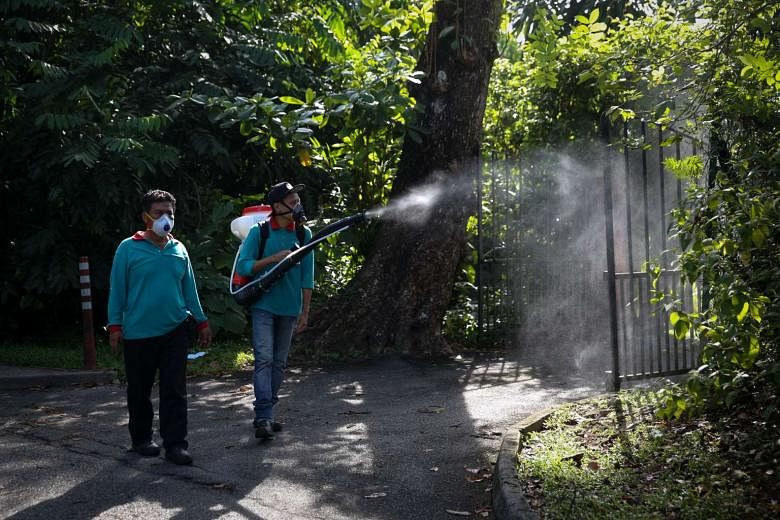SINGAPORE - The "possibility of secondary infection" from Singapore's first imported Zika case remains, said the authorities, even as the infected Watten Estate resident has since been discharged from hospital.
In a joint statement released on Friday (May 20), the Ministry of Health and the National Environment Agency (NEA) urged the public to remain vigilant until June 23 - the end of a six-week period from the Zika patient's date of isolation.
The period takes into account the maximum incubation period of Zika, the lifespan of the Aedes mosquito and any possible delays by infected people in seeking medical attention.
The 48-year-old permanent resident was confirmed as having the virus last Friday (May 13) after contracting it during a business trip to Sao Paulo, Brazil.
"Even after June 23, we will still need to remain vigilant for the possibility of new imported cases," the agencies said. The virus is spread by the Aedes mosquito, which also transmits dengue.
Since Wednesday (May 18), more than 700 premises have been inspected, with 43 mosquito-breeding habitats detected and destroyed. Most were in homes.
"NEA will continue to keep the area under surveillance...for as long as there continues to be a risk of Zika transmission in the area," a spokesman said.


